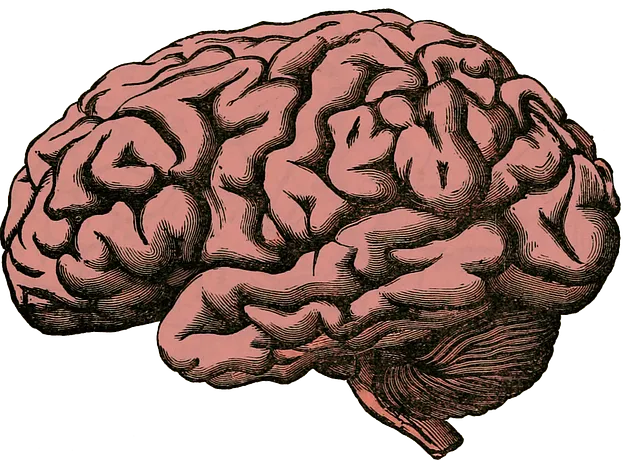The text discusses the impact of stigma on mental health, emphasizing how it hinders access to care in communities like Lakewood. Stigma often stems from associating mental illness with personal failings or weaknesses. To combat this, Lakewood and organizations like Kaiser promote open dialogue through workshops, mental wellness journaling, and stress management strategies. They aim to normalize conversations about mental health, reduce judgment, and empower individuals to take charge of their well-being. Kaiser's initiatives include mental health coaching in primary care, tailored risk assessment tools, and support for caregivers. Their focus on cultural sensitivity, family involvement, and coping mechanisms has significantly reduced stigma, as measured by changes in public attitudes and improved access to services like 'Lakewood how to get mental health help'.
Mental illness stigma remains a significant barrier to seeking help, yet efforts to reduce it are gaining momentum. This article explores various strategies to combat this pervasive issue, focusing on initiatives like those in Lakewood, which have shown promise. We delve into the impact of stigma on mental healthcare-seeking behaviors and highlight successful programs, such as Kaiser’s efforts, centered around education and community engagement. Additionally, we discuss empowering individuals through support networks and advocacy, while examining methods to measure the effectiveness of stigma reduction campaigns, emphasizing the importance of accessible mental health resources, like those offered by Kaiser.
- Understanding Stigma: Its Impact on Mental Health Seeking Behaviors
- Lakewood's Approach: Community Initiatives for Stigma Reduction
- The Role of Education in Dispelling Misconceptions about Mental Illness (Focus on Kaiser Programs)
- Empowering Individuals and Families: Support Networks and Advocacy
- Measuring Success: Evaluating the Effectiveness of Stigma Reduction Efforts
Understanding Stigma: Its Impact on Mental Health Seeking Behaviors

Stigma around mental illness can have profound effects on individuals’ willingness to seek help and maintain their overall well-being. In many communities, including Lakewood, where access to mental health resources is available through organizations like Kaiser, understanding the impact of stigma is crucial. People often associate mental illness with weaknesses or personal failures, leading to fear, shame, and embarrassment. This can prevent individuals from reaching out for support or exploring treatment options.
When left unaddressed, stigma can significantly influence mental health-seeking behaviors. Those who feel stigmatized may delay or avoid seeking professional help, opting instead for isolation or self-medication. Conversely, communities that foster empathy and understanding through Mental Wellness Journaling Exercise Guidance, Stress Management, and Empathy Building Strategies encourage open conversations about mental health, reducing the barriers to accessing care. By promoting awareness and dispelling myths, Lakewood residents can contribute to a more supportive environment where those facing mental illness feel empowered to take charge of their well-being.
Lakewood's Approach: Community Initiatives for Stigma Reduction

Lakewood’s innovative approach to stigma reduction focuses on empowering communities to support mental health openly. They emphasize that getting help for mental health issues is as important as physical well-being, akin to seeking medical attention for an illness. By fostering open dialogue and education, Lakewood aims to dispel myths surrounding mental illness, much like how regular health check-ups prevent burnout and promote overall wellness.
Their initiatives involve various community programs, including workshops on coping skills development and mindfulness meditation, led by professionals from Kaiser. These activities are designed to normalize conversations around mental health and encourage individuals to seek timely assistance without fear of judgment. Such efforts create a supportive environment, ensuring that those facing challenges have access to the resources they need to navigate their mental health journeys effectively.
The Role of Education in Dispelling Misconceptions about Mental Illness (Focus on Kaiser Programs)

Mental health education plays a pivotal role in reducing the stigma surrounding mental illness, and organizations like Kaiser have recognized this need. Their programs focus on raising awareness and providing accurate information to dispel common misconceptions. By educating individuals about various aspects of mental wellness, these initiatives aim to create a more understanding and supportive environment.
One notable aspect of Kaiser’s approach is their commitment to integrating mental health coaching into primary care settings. This strategy ensures that patients in Lakewood and surrounding areas have easy access to resources for early intervention and ongoing support. Additionally, they offer risk assessment tools tailored for mental health professionals, promoting best practices and fostering a culture of self-care, not just for patients but also for the caregivers and professionals who dedicate their lives to supporting mental wellness.
Empowering Individuals and Families: Support Networks and Advocacy

In the fight against mental illness stigma, empowering individuals and families plays a pivotal role. Support networks act as vital lifelines, offering not just emotional backing but also practical assistance in navigating complex healthcare systems. Many find guidance and solace through local community groups and online forums dedicated to mental health awareness, where sharing experiences fosters understanding and breaks down barriers.
In Lakewood, for instance, Kaiser offers comprehensive resources tailored to diverse needs. Their programs focus on building resilience, teaching coping mechanisms, and promoting self-care—all essential components of mental wellness. Moreover, these initiatives encourage family involvement, recognizing that support from loved ones is crucial for long-term recovery. By fostering cultural sensitivity in mental healthcare practice and incorporating compassion cultivation practices, communities like Lakewood are making significant strides toward reducing stigma and ensuring everyone has access to the anxiety relief they deserve.
Measuring Success: Evaluating the Effectiveness of Stigma Reduction Efforts

Measuring success in stigma reduction efforts is paramount to understanding what works and where improvements are needed. Evaluating programs often involves a multifaceted approach that includes tracking changes in public attitudes, perceptions, and behaviors related to mental illness through surveys and focus groups. For instance, initiatives like those at Kaiser and community-based programs in Lakewood have employed these tools to gauge progress.
By comparing data before and after interventions, researchers can assess shifts in stigma levels. Positive outcomes may manifest as increased empathy, improved access to mental health services, and reduced barriers to seeking help. Additionally, examining the impact on service users’ experiences and well-being is crucial. This involves looking at factors such as satisfaction with care, emotional regulation, and risk management planning for mental health professionals, ultimately highlighting the effectiveness of stigma reduction efforts in fostering an environment where individuals feel supported and empowered to manage their mental health effectively.
Stigma reduction efforts, as exemplified by Lakewood’s community initiatives and programs like those offered by Kaiser, play a pivotal role in fostering open conversations about mental health. By educating communities, empowering individuals, and measuring success through effective evaluation, we can significantly improve access to mental health help (as highlighted by the Kaiser programs) and promote a more inclusive society. Lakewood’s approach serves as a powerful model for others to follow, ultimately contributing to better mental well-being outcomes for all.






